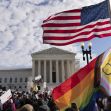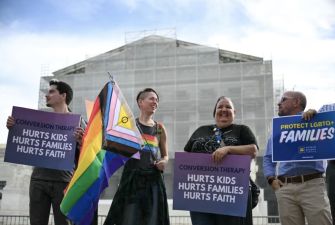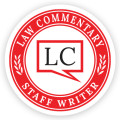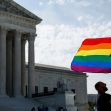The Supreme Court heard arguments Tuesday in Chiles v. Salazar, a case testing whether Colorado’s ban on conversion therapy for minors violates the First Amendment. The law bars licensed therapists from attempting to change a young person’s sexual orientation or gender identity, and the justices are weighing whether that restriction unlawfully limits what counselors can say to their clients.
Attorney James A. Campbell, representing counselor Kaley Chiles, told the Court that the law censors private and voluntary discussions between therapists and clients. He argued that it allows speech supporting gender transition but forbids counseling that affirms a client’s birth sex. Campbell called this “a government ban on disfavored ideas” and urged the justices to apply strict scrutiny. He cited the Court’s 2018 decision in National Institute of Family and Life Advocates v. Becerra, which protected professional expression from state-imposed speech limits.
The U.S. Solicitor General’s Office, which represents the federal government before the Supreme Court, also filed a brief supporting Chiles. In oral arguments, Principal Deputy Solicitor General Hashim M. Mooppan said Colorado’s law limits speech rather than conduct. He told the justices that the state cannot restrict voluntary conversations between therapists and clients simply because it disagrees with what is being said. “There’s no separate non-speech conduct being regulated here,” he said, warning that if the law is upheld, it could allow governments to control professional advice based on viewpoint. The Justice Department clarified that its support focused on protecting constitutional speech rights, not on endorsing conversion therapy.
Colorado Solicitor General Shannon W. Stevenson defended the statute, arguing that it regulates medical conduct under accepted professional standards. She said the state has a duty to protect minors from practices deemed harmful or discredited by leading medical organizations. Stevenson compared the restriction to medical rules that prohibit treatments outside accepted standards of care and said speech within a therapeutic setting is not the same as public advocacy.
The justices questioned both sides on how far the state’s authority extends over professional counseling. Justice Amy Coney Barrett and Justice Ketanji Brown Jackson asked how the “standard of care” applies to speech. Justice Neil Gorsuch questioned whether Colorado’s reasoning could justify bans on counseling about other sensitive topics, such as abortion or divorce. Justice Clarence Thomas asked whether the state had shown clear evidence that voluntary talk therapy causes harm.
Lower courts have reached different conclusions on similar laws. The Eleventh Circuit struck down local conversion therapy bans as unconstitutional viewpoint discrimination, while the Ninth Circuit upheld comparable restrictions as permissible regulation of professional conduct. The Supreme Court’s decision in Chiles v. Salazar will address that conflict and determine the extent of state authority to regulate professional speech in counseling and healthcare.
A ruling is expected by the end of the Court’s term in June 2026.






